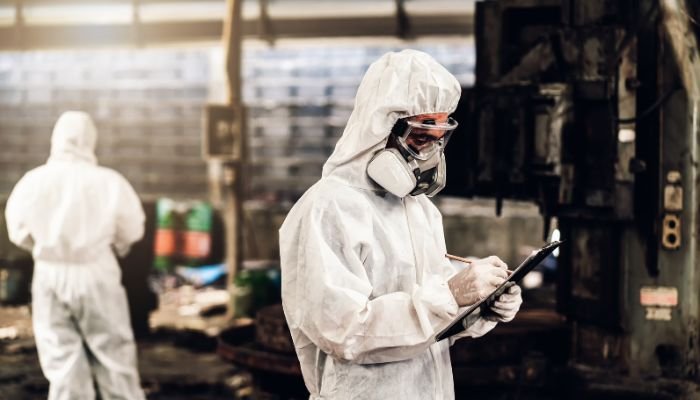Introduction
Medication waste is a significant issue in healthcare, contributing to environmental pollution, increased healthcare costs, and potential harm to public health. As frontline healthcare providers, pharmacists play a crucial role in addressing this problem. This article explores how pharmacists can help tackle the issue of waste through various strategies and interventions, from patient education to policy advocacy.
Understanding the Problem of Medication Waste

Medication waste occurs when prescribed medicines are not used as intended and are subsequently discarded. This can happen for several reasons, including overprescribing, patient non-adherence to medication regimens, changes in treatment plans, and the expiration of medications before they are used.
Environmental Impact
Improper disposal of medications can lead to environmental contamination. Pharmaceuticals can enter water systems through flushing or throwing medications in the trash, posing risks to aquatic life and potentially affecting human health through water supplies.
Economic Impact
This waste also has significant economic implications. It leads to unnecessary healthcare costs, including the cost of unused medications and the additional healthcare services required to address health issues arising from non-adherence or inappropriate medication use.
Public Health Impact
Unused medications in homes can be a source of accidental poisoning, especially in children and pets. They can also be diverted for misuse and abuse, contributing to public health crises such as the opioid epidemic.
The Role of Pharmacists in Reducing Medication Waste

Pharmacists are uniquely positioned to combat medication waste due to their expertise in medication management and direct interaction with patients. Here are several ways pharmacists can help reduce this waste:
1. Medication Therapy Management (MTM)
Medication Therapy Management (MTM) is a service provided by pharmacists to optimize therapeutic outcomes for patients. Through MTM, pharmacists can:
- Review Medication Regimens: Assess patients’ medication regimens for appropriateness, effectiveness, and safety, identifying and resolving issues such as unnecessary medications or incorrect dosages.
- Enhance Adherence: Work with patients to improve adherence to medication regimens, which can reduce the likelihood of medications being left unused.
- Educate Patients: Provide education on the proper use of medications, the importance of adherence, and the potential risks of waste.
2. Patient Counseling and Education
Effective patient counseling is essential in reducing waste. Pharmacists can educate patients on:
- Proper Medication Use: Explain how to take medications correctly, the importance of completing prescribed courses, and what to do if a dose is missed.
- Disposal Methods: Inform patients about safe disposal methods for unused or expired medications, such as take-back programs or designated disposal sites.
- Storage Guidelines: Advise on proper storage conditions to ensure medications remain effective until their expiration date, reducing the likelihood of wastage.
3. Medication Synchronization
Medication synchronization, or med sync, is a service where pharmacists coordinate the refill of all a patient’s chronic medications so they can be picked up on a single day each month. This can:
- Improve Adherence: Make it easier for patients to manage their medications and adhere to their treatment regimens.
- Reduce Waste: Prevent partial fills and unused medications by aligning refill schedules.
4. Inventory Management
Pharmacists can implement inventory management strategies to reduce this waste at the pharmacy level. These include:
- Just-In-Time Ordering: Use just-in-time ordering to minimize the amount of medication that expires on the shelf.
- Monitor Stock Levels: Regularly monitor stock levels and adjust orders based on demand to prevent overstocking.
- Return Policies: Work with suppliers to establish return policies for unused medications to reduce waste.
5. Policy Advocacy
Pharmacists can advocate for policies and programs that support waste reduction, such as:
- Take-Back Programs: Promote the establishment and use of medication take-back programs where patients can return unused medications safely.
- Education Campaigns: Support public education campaigns on the risks of medication waste and proper disposal methods.
- Legislation: Advocate for legislation that encourages responsible prescribing practices and the development of systems to track and manage the waste.
6. Technological Solutions

Pharmacists can leverage technology to reduce the waste through:
- Electronic Health Records (EHRs): Use EHRs to track patient medication histories, reducing the likelihood of duplicate or unnecessary prescriptions.
- Automated Dispensing Systems: Implement automated dispensing systems that help manage inventory and reduce errors in medication dispensing.
- Telepharmacy: Utilize telepharmacy services to reach underserved populations, ensuring they receive proper medication management and reducing waste from unused medications.
Case Studies and Real-World Examples
Several initiatives have demonstrated the effectiveness of pharmacists in reducing the waste:
1. Safe Medication Disposal Programs
Many pharmacies have implemented safe medication disposal programs. For example, Walgreens has installed safe medication disposal kiosks in many of their stores, allowing patients to dispose of unused medications responsibly. This initiative has successfully collected and disposed of millions of pounds of unwanted medications.
2. Medication Synchronization Programs
The Community Pharmacy Enhanced Services Network (CPESN) in the United States has implemented medication synchronization programs across various pharmacies. These programs have shown significant improvements in medication adherence and reductions in medication waste.
3. MTM Services in Medicare
Medicare Part D offers MTM services to eligible beneficiaries. Studies have shown that MTM services provided by pharmacists can improve medication adherence, optimize therapeutic outcomes, and reduce healthcare costs associated with medication waste.
Future Directions and Innovations
As the healthcare landscape evolves, new strategies and innovations will continue to emerge in the fight against medication waste. Future directions include:
Personalized Medicine
Advancements in personalized medicine, where treatments are tailored to individual genetic profiles, can reduce waste by ensuring patients receive the most effective medications with fewer side effects.
Artificial Intelligence (AI) and Machine Learning
AI and machine learning can predict medication adherence patterns and identify patients at risk of non-adherence. Pharmacists can use this information to intervene proactively, improving adherence and reducing medication waste.
Sustainable Packaging
Pharmaceutical companies are exploring sustainable packaging solutions to reduce the environmental impact of this waste. Pharmacists can support these initiatives by promoting products with eco-friendly packaging.
Conclusion
Medication waste is a multifaceted problem with significant environmental, economic, and public health implications. Pharmacists, as medication experts and patient advocates, are uniquely positioned to address this issue through medication therapy management, patient education, inventory management, policy advocacy, and technological solutions. By implementing these strategies, pharmacists can play a crucial role in reducing waste, improving patient outcomes, and contributing to a more sustainable healthcare system.








